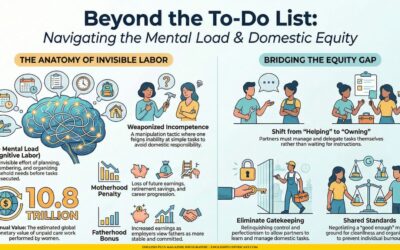Access to healthcare is a fundamental human right, yet for many people, it remains out of reach. Across the world, and even within individual countries, there are significant disparities in who can get the care they need and when. These healthcare disparities are shaped by a complex web of factors, including socio-economic status, race, geography, and even government policies. Understanding these issues is the first step toward building a more equitable healthcare system that serves everyone, not just a privileged few.
What Are Healthcare Disparities?
Healthcare disparities refer to differences in access to, quality of, and outcomes from healthcare services across different population groups. These disparities often affect marginalized communities, such as racial and ethnic minorities, low-income individuals, and rural populations.
For example, in the United States, studies show that African Americans and Hispanic Americans are less likely to receive preventive care, more likely to suffer from chronic conditions like diabetes and heart disease, and face higher mortality rates than their white counterparts. Similarly, people living in rural areas often have limited access to healthcare facilities and providers, leading to worse health outcomes compared to those in urban areas.
In real life, think about the last time you visited a doctor or clinic. How easy was it for you to get an appointment? Did you feel you received quality care? Now imagine if that experience was consistently difficult or substandard—this is the reality for many people facing healthcare disparities.
The Causes of Healthcare Disparities
Healthcare disparities are rooted in a variety of factors, many of which are interconnected:
- Socio-economic Status: Poverty can limit access to healthcare services, nutritious food, and health education. Without financial resources, people may forgo necessary treatments or preventive care, leading to more severe health issues over time.
- Geography: Rural areas often lack healthcare infrastructure, making it difficult for residents to access care. Traveling long distances to see a doctor or specialist can be a significant barrier, especially for those without reliable transportation.
- Racial and Ethnic Discrimination: Systemic racism in healthcare can result in poorer treatment and outcomes for people of color. Implicit bias among healthcare providers can also affect the quality of care these patients receive.
- Insurance Coverage: In countries without universal healthcare, having insurance often determines whether someone can afford care. Even within insurance systems, disparities exist, as not all plans cover the same services or providers.
- Health Literacy: Understanding how to navigate the healthcare system and manage one’s health is essential. However, disparities in education and access to information can leave some populations at a disadvantage.
The Real-Life Impact of Healthcare Disparities
The consequences of healthcare disparities are far-reaching. For individuals, it can mean living with untreated conditions, experiencing unnecessary suffering, or even dying prematurely. For society, it contributes to a less healthy workforce, increased healthcare costs, and a cycle of poverty and poor health that is difficult to break.
Take the COVID-19 pandemic as an example. Marginalized communities were hit hardest, both in terms of infection rates and mortality. Limited access to testing, treatment, and vaccines, combined with pre-existing health conditions, resulted in disproportionately high death rates among racial and ethnic minorities.
In real life, you might see these disparities play out in your community. Perhaps a friend or family member struggles to afford healthcare or has to travel hours to see a specialist. These are not isolated incidents—they are part of a broader pattern of inequality that needs to be addressed.
How Can We Address Healthcare Disparities?
Addressing healthcare disparities requires a multifaceted approach:
- Expanding Access to Care: Policies that increase access to healthcare, such as expanding Medicaid or providing subsidies for insurance, can help bridge the gap for low-income individuals.
- Improving Health Literacy: Education campaigns that teach people how to manage their health, understand their rights as patients, and navigate the healthcare system can empower underserved communities.
- Investing in Rural Healthcare: Building healthcare infrastructure in rural areas, including telemedicine services, can help reduce geographic disparities.
- Addressing Implicit Bias: Training healthcare providers to recognize and counteract their biases can improve the quality of care for marginalized populations.
- Advocating for Policy Change: Supporting policies that promote healthcare equity, such as universal healthcare or targeted interventions for underserved populations, can create lasting change.
Take Action
The issue of healthcare disparities is not just a policy problem—it’s a human problem that affects lives every day. Start by educating yourself and those around you about the realities of healthcare inequality. Advocate for policies that promote access to healthcare for all, and support organizations working to close these gaps. On a personal level, be mindful of how these disparities might affect the people in your life and do what you can to help them navigate the system.
By understanding healthcare disparities and their impact, this article encourages you to take action. How will you contribute to creating a more equitable healthcare system? The steps you take, no matter how small, can make a difference in someone’s life.
Expand Your Vocabulary
- Healthcare Disparities
- Meaning: Differences in access to, quality of, and outcomes from healthcare services among various population groups.
- In Context: The article explains how healthcare disparities impact marginalized communities. In everyday language, you might use this term when discussing inequalities in medical treatment, such as, “Addressing healthcare disparities is crucial for ensuring everyone gets the care they need.”
- Socio-economic Status
- Meaning: A measure of a person’s economic and social position in relation to others, based on income, education, and occupation.
- In Context: The article mentions how socio-economic status affects access to healthcare. You might hear this term in discussions about inequality, for example, “People from lower socio-economic backgrounds often face more challenges in accessing education and healthcare.”
- Implicit Bias
- Meaning: The unconscious attitudes or stereotypes that influence our decisions and actions, often without us realizing it.
- In Context: The article discusses how implicit bias in healthcare can lead to unequal treatment for marginalized groups. In everyday conversation, you might use this term when talking about unconscious prejudices, like, “Implicit bias can affect how we interact with people from different backgrounds.”
- Health Literacy
- Meaning: The ability to understand and use information to make informed decisions about one’s health.
- In Context: The article highlights the importance of health literacy in managing healthcare disparities. You might use this term when discussing someone’s ability to navigate the healthcare system, such as, “Improving health literacy can help people take better care of themselves.”
- Racial and Ethnic Discrimination
- Meaning: Unfair treatment of individuals based on their race or ethnicity, which can affect various aspects of life, including healthcare.
- In Context: The article explains how racial and ethnic discrimination contributes to healthcare disparities. You might hear this term in discussions about social justice, for example, “Addressing racial and ethnic discrimination is essential for creating a fairer society.”
- Preventive Care
- Meaning: Healthcare services that focus on preventing illness and maintaining health, rather than treating diseases after they occur.
- In Context: The article mentions that some communities have less access to preventive care. In everyday life, you might talk about preventive care when discussing routine check-ups or vaccinations, like, “Getting regular preventive care can help catch health issues early.”
- Chronic Conditions
- Meaning: Long-lasting health conditions that require ongoing management, such as diabetes, heart disease, or asthma.
- In Context: The article discusses how healthcare disparities can lead to worse outcomes for chronic conditions. You might use this term when talking about long-term health issues, like, “Managing chronic conditions requires regular check-ups and a healthy lifestyle.”
- Universal Healthcare
- Meaning: A healthcare system in which all citizens have access to healthcare services, typically funded by the government.
- In Context: The article touches on universal healthcare as a potential solution to healthcare disparities. In everyday conversation, you might use this term when discussing healthcare systems in different countries, like, “Universal healthcare ensures that everyone, regardless of income, can access medical services.”
- Telemedicine
- Meaning: The use of technology to provide healthcare services remotely, such as consultations and monitoring.
- In Context: The article mentions telemedicine as a way to improve access to healthcare in rural areas. You might use this term when discussing online doctor visits or remote health services, like, “Telemedicine has made it easier for people to consult with doctors without leaving their homes.”
- Advocate
- Meaning: To publicly support or recommend a cause or policy; someone who supports or fights for a cause.
- In Context: The article encourages readers to advocate for policies that promote healthcare equity. You might use this term when talking about supporting a cause, like, “She’s a strong advocate for mental health awareness.”
Let’s Talk
- How have you or someone you know been affected by healthcare disparities? What steps can you take to advocate for better access to healthcare in your community?
- This question encourages you to reflect on personal experiences with healthcare and think about how you can contribute to positive change.
- The article discusses the importance of health literacy in managing healthcare disparities. How confident are you in navigating the healthcare system, and what resources could help you improve your health literacy?
- This question prompts you to consider your own understanding of healthcare and how you can become more informed.
- Racial and ethnic discrimination continues to impact healthcare outcomes. How can we address implicit bias in healthcare settings to ensure that everyone receives fair treatment?
- This question invites you to think critically about the role of bias in healthcare and explore ways to combat it.
- Access to preventive care is essential for maintaining good health. What preventive measures do you currently take, and how can you encourage others to prioritize their health?
- This question encourages you to reflect on your own health practices and how you can promote preventive care within your community.
- Telemedicine is becoming increasingly popular as a solution for healthcare access. How do you feel about using telemedicine services, and what benefits or challenges have you experienced with them?
- This question invites you to explore your thoughts on telemedicine and consider how it can be improved to meet more people’s needs.
By engaging with these questions, you can deepen your understanding of healthcare disparities and explore practical ways to address these issues in your own life and community. Discussing these topics with others can lead to meaningful conversations and inspire collective action toward a more equitable healthcare system.










0 Comments